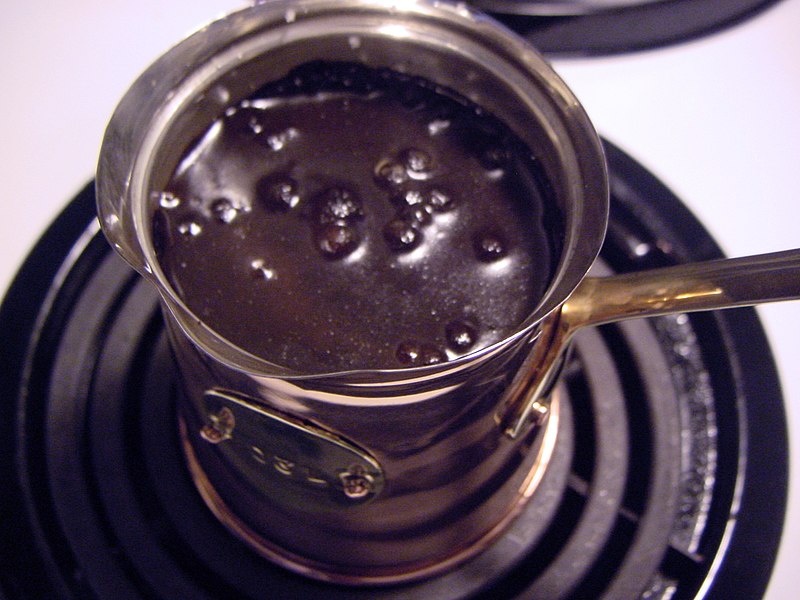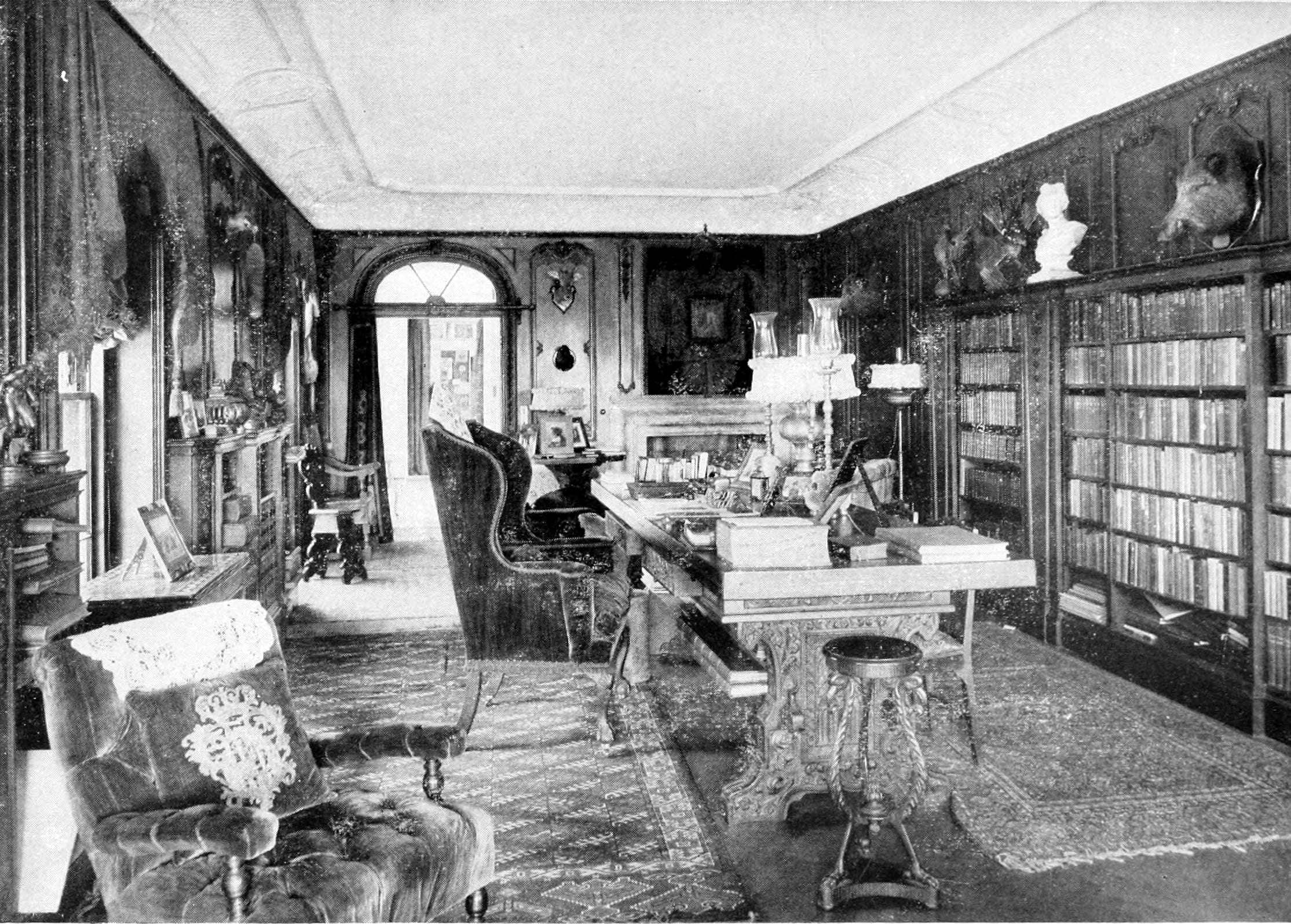CSCD on wikicommons lets us use the image at left of Rubic's cube for our discussion.
There are many mysteries in the world. This one is mine.
That's where to start. When you contemplate murder or other crime of note as a central item in the story: the puzzle is the thing.
It isn't necessarily the thing for you or even the readers; but, it is the thing for the characters. It drives them.
Why was he killed? Who killed him? Who found the body before George? Where was he killed?
Will I be killed, too?
That last one is a great one. What are the consequences ...am I in danger?
There are many mysteries. My favorite is why Girl Scout cookies are not considered single serving items in their boxes. I mean, have you ever opened a tube of thin mints and not consumed them all in some guilty oblivious pleasure?
I you assert you have resisted, I assert you are lying.
And the lie - another great puzzle. Why should characters tell the truth? You don't You write fiction.
You lie like the rug.
Look, All I'm saying is don;t forget that a mystery is a puzzle and if you and the readers aren't concerned: cool. The characters are.
Nobody finds a body and the summer house then goes merrily on without a care in the world.
Dead folks change things. They change them more than the living. In murder, they change things most of all.
They're a demarcation point in fiction: beyond the body nothing can remain the same.
Are your characters reacting to the body in a strong enough fashion? Are you sure?
Then throw in another body. You can ignore one. It's part of the landscape. Two ... well. Two is a problem no one can ignore.
Get to it, Jack.
Put one on the page. Change some things.
I'm off to do just that.
I've got an ending that needs revision. A good perspective on the murder will do that for me.
Bodies drive stories. They're puzzles in the flesh.
Jack Welling is a writer whose topics include deceit, lies, murder, unreliable women, unfaithful men, unrepentant sinners, and inattentive gods. Collect the whole set.
clues at the scene

Thursday, January 28, 2016
Thursday, January 21, 2016
Finishing A Project
At left, Reliance crossing the finish line in the America's Cup, 1903.
She won.
I finish a project in the morning. I love writing the endings of a draft because at the end, I know more than I did at the beginning.
It means that I sometimes have logical inconsistencies, changed character motivations, even characters who are entirely different in the end than there were in the beginning - and not in a good introspective literary fiction sort of way.
It is a line, though, It means the next draft can be much better.
This one's a winner and needs care and attention of much the same type as a racing yacht.
I'm writing.
I'm going into a period of transcribing, revising, and reading.
It's time to re-read Writing Fiction, A Guide to the Narrative Craft by Burrow and Stuckey-French.
The time to read books on writing is when you are not writing. Revision and editing make good tasks for me during periods of "professional education."
What do you read when revising?
Off to set-up the ending while the wind is strong and steady.
Bon Voyage.
She won.
I finish a project in the morning. I love writing the endings of a draft because at the end, I know more than I did at the beginning.
It means that I sometimes have logical inconsistencies, changed character motivations, even characters who are entirely different in the end than there were in the beginning - and not in a good introspective literary fiction sort of way.
It is a line, though, It means the next draft can be much better.
This one's a winner and needs care and attention of much the same type as a racing yacht.
I'm writing.
I'm going into a period of transcribing, revising, and reading.
It's time to re-read Writing Fiction, A Guide to the Narrative Craft by Burrow and Stuckey-French.
The time to read books on writing is when you are not writing. Revision and editing make good tasks for me during periods of "professional education."
What do you read when revising?
Off to set-up the ending while the wind is strong and steady.
Bon Voyage.
Monday, January 11, 2016
Cold Weather, Hot Ink
Image at left from wikicommons - and is actually boiling Turkish coffee instead of ink. Almost the same. (I love Turkish coffee). Thanks to Johnny MrNinja and Nate Steiner for allowing our enjoyment for just a mention. Great snap.
Cold dark nights are perfect for all those ideas that you've carried around all summer.
I've got a great story gem around the "found body" sort of business and of course, the body is someplace it really shouldn't be right now.
Shut in with snow tonight? Think of those grand Edwardian mansions with a footman dead on the front steps. What now? Why? What twists can we throw?
All warmed up?
Now put the body outside Uncle Ralph's summer cottage on Thanksgiving weekend.
Oh, the trouble we brew when it is murder we desire.
Dark. Deep. A little sweet.
I've got to go brew some mayhem in a pan. I'll be up for hours.
You shouldn't be sleeping either.
Cold dark nights are perfect for all those ideas that you've carried around all summer.
I've got a great story gem around the "found body" sort of business and of course, the body is someplace it really shouldn't be right now.
Shut in with snow tonight? Think of those grand Edwardian mansions with a footman dead on the front steps. What now? Why? What twists can we throw?
All warmed up?
Now put the body outside Uncle Ralph's summer cottage on Thanksgiving weekend.
Oh, the trouble we brew when it is murder we desire.
Dark. Deep. A little sweet.
I've got to go brew some mayhem in a pan. I'll be up for hours.
You shouldn't be sleeping either.
Saturday, January 9, 2016
By the Evidence I Will Know Your Guilt
At left, public domain image from wikicommons of the intrepid FBI doing their bits. Picture is unattributed from 2009 of an evidence response team doing the fine-tooth-comb two-step.
We lay out crime in our stories and in those stories we need to leave the breadcrumbs.
We don't have to leave them all. I hate "You Know, Bob..." as much as anyone. Doubly so in a Star Wars film.
We do have to leave some if the story involves pursuit.
In real life, evidence is a mess. There's a chewing gum foil wrapping gum on the curb where neighbors reported the murderer's car to be parked. Oh Joy!
Turns out, probably not from the killer. Also, turns out the FBI doesn't show up in droves to poke about. Big chance no one ever notices the piece of detritus.
I'm going to say that in murder investigations across the US, there isn't a great deal of "usually." A gunshot through a window in Detroit, in Buckhead, and in Laurel, Nebraska are going to be handled differently.
Detroit had 10,000 unprocessed rape kit of evidence gathered from the medical treatment of rape victims that went unprocessed. The 10,000 were as of 2010.[ actually, reported as 11,219 as of 2015 in this article : kits.]
Point is: you get to have a lot of slack in your lines over the actual process revealed in a procedural crime story. Anything you can say happens somewhere almost every day.
So, there is a strong desire by new writers to be as "accurate" as possible in police procedure and the handling of crime - that is for new writers who have little background with the criminal justice system.
Relax. It's evidence. Reveal some of it to the reader. Don't go bananas over what it means.
You don't have to connect the dots correctly. Works better sometimes when the story connects the dots incorrectly. Some of the best have the detective pursuing a suspect who they falsely believe is the culprit.
That gum on your shoe? It's got a pretty good tail behind it.
Shoot someone. [ paraphrasing Mr. Chandler here. have a guy walk through a door with a gun.]
We have to have a decent crime to have a crime story. We don't have to have decent evidence.
Got to run.
I'm late for the scene of the crime.
We lay out crime in our stories and in those stories we need to leave the breadcrumbs.
We don't have to leave them all. I hate "You Know, Bob..." as much as anyone. Doubly so in a Star Wars film.
We do have to leave some if the story involves pursuit.
In real life, evidence is a mess. There's a chewing gum foil wrapping gum on the curb where neighbors reported the murderer's car to be parked. Oh Joy!
Turns out, probably not from the killer. Also, turns out the FBI doesn't show up in droves to poke about. Big chance no one ever notices the piece of detritus.
I'm going to say that in murder investigations across the US, there isn't a great deal of "usually." A gunshot through a window in Detroit, in Buckhead, and in Laurel, Nebraska are going to be handled differently.
Detroit had 10,000 unprocessed rape kit of evidence gathered from the medical treatment of rape victims that went unprocessed. The 10,000 were as of 2010.[ actually, reported as 11,219 as of 2015 in this article : kits.]
Point is: you get to have a lot of slack in your lines over the actual process revealed in a procedural crime story. Anything you can say happens somewhere almost every day.
So, there is a strong desire by new writers to be as "accurate" as possible in police procedure and the handling of crime - that is for new writers who have little background with the criminal justice system.
Relax. It's evidence. Reveal some of it to the reader. Don't go bananas over what it means.
You don't have to connect the dots correctly. Works better sometimes when the story connects the dots incorrectly. Some of the best have the detective pursuing a suspect who they falsely believe is the culprit.
That gum on your shoe? It's got a pretty good tail behind it.
Shoot someone. [ paraphrasing Mr. Chandler here. have a guy walk through a door with a gun.]
We have to have a decent crime to have a crime story. We don't have to have decent evidence.
Got to run.
I'm late for the scene of the crime.
Thursday, January 7, 2016
Mr. Writer In the Library With a Noose
At left, a public domain image courtesy wikicommons. Library is former den of Mr. George von Lengerke Meyer at Rock Maple Farm in Hamilton, Massachusetts.
I write in a coffee shop on Friday mornings with a writing friend. It's a chance to get away from this: an empty room.
I could however use a warthog over my bookcase. We have a "no dead animals" rule here and while I have a bear head on the wall of my library, it is a pottery piece of porcelain art.
I write mostly in my library with a foxhound on a pillow (he stole it from a visiting grandchild camped out in my library) and a strong cup of tea near my hand.
I usually end a session with three-quarters of a cold cup of tea.
At the coffee shop I eat fresh scones (forbidden food) and drink several mugs of hot strong java.
Both places have their merits. I'm good at shutting things out. I went to an "open plan" school and so learned young how to do my work with the conversation of hundreds of people around me. I don't think schools are built in such experimental fashion any longer.
How do you work best and how do you handle the division between social and isolated environments? Does environment reflect on your stories?
These are things to consider. I do poorly writing when I travel. I do well in places of habit - even noisy ones.
Time to walk the hound. Maybe a new cup of tea, too.
I write in a coffee shop on Friday mornings with a writing friend. It's a chance to get away from this: an empty room.
I could however use a warthog over my bookcase. We have a "no dead animals" rule here and while I have a bear head on the wall of my library, it is a pottery piece of porcelain art.
I write mostly in my library with a foxhound on a pillow (he stole it from a visiting grandchild camped out in my library) and a strong cup of tea near my hand.
I usually end a session with three-quarters of a cold cup of tea.
At the coffee shop I eat fresh scones (forbidden food) and drink several mugs of hot strong java.
Both places have their merits. I'm good at shutting things out. I went to an "open plan" school and so learned young how to do my work with the conversation of hundreds of people around me. I don't think schools are built in such experimental fashion any longer.
How do you work best and how do you handle the division between social and isolated environments? Does environment reflect on your stories?
These are things to consider. I do poorly writing when I travel. I do well in places of habit - even noisy ones.
Time to walk the hound. Maybe a new cup of tea, too.
Wednesday, January 6, 2016
The Addiction of the Ink
At left, a vial of morphine taken from wikicommons as placed in the public domain by Stickpen. Thanks for that.
Here we have it: morphine. Why bother with the middleman? Go straight for the hard stuff. This is it.
I've been writing. I've been ignoring the blog because I didn't think it helped me write.
Maybe it does.
It's been an especially creative period over the holidays. I hope you can say the same.
I have ink stained fingers. I am in a composing phase and have spent a lot of time with fountain pen in hand. I believe I am producing better stories. I'm happy about them.
I like the odd little perspective: the unusual twist. I like cleaning ladies who moonlight as enforcers for a drug dealer. I like lawmen who are as bad as the criminals. I like heroes who prefer to not do the right thing but who cannot help themselves in the end.
I like big dogs in little cars.
Stay off the sauce. Stay on the ink. The stories will come; but, you have to finish a lot of them for little tricks to all work out as you want when you are composing.
I have to get a little more ink on my paws tonight before I turn in ... and so do you. Keep that pen and paper handy. Kill your television. Cancel Netflicks. Block Hulu.
Tell some stories. Tell some stories you like ...
The hardest part is that first pass where you tell yourself the tale and then have the courage to turn right back around and re-write with little markers where all the juicy parts you though of "too late" in the first pass ought to fold back into themselves.
Messy? Sure.
But fun.
Take a hit. It's only ink.
First one's free.
Here we have it: morphine. Why bother with the middleman? Go straight for the hard stuff. This is it.
I've been writing. I've been ignoring the blog because I didn't think it helped me write.
Maybe it does.
It's been an especially creative period over the holidays. I hope you can say the same.
I have ink stained fingers. I am in a composing phase and have spent a lot of time with fountain pen in hand. I believe I am producing better stories. I'm happy about them.
I like the odd little perspective: the unusual twist. I like cleaning ladies who moonlight as enforcers for a drug dealer. I like lawmen who are as bad as the criminals. I like heroes who prefer to not do the right thing but who cannot help themselves in the end.
I like big dogs in little cars.
Stay off the sauce. Stay on the ink. The stories will come; but, you have to finish a lot of them for little tricks to all work out as you want when you are composing.
I have to get a little more ink on my paws tonight before I turn in ... and so do you. Keep that pen and paper handy. Kill your television. Cancel Netflicks. Block Hulu.
Tell some stories. Tell some stories you like ...
The hardest part is that first pass where you tell yourself the tale and then have the courage to turn right back around and re-write with little markers where all the juicy parts you though of "too late" in the first pass ought to fold back into themselves.
Messy? Sure.
But fun.
Take a hit. It's only ink.
First one's free.
Subscribe to:
Posts (Atom)





